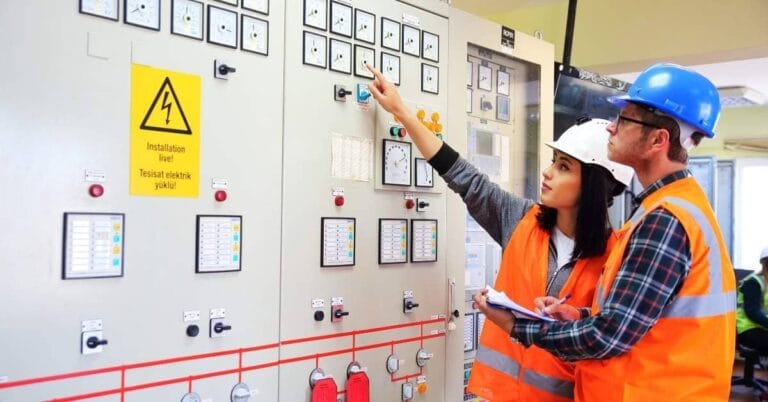
The UAE’s Ambitious Investment Plan Set to Transform the Job Market
The UAE’s recently approved National Investment Strategy aims to attract a staggering Dh128 billion in foreign direct investment (FDI) over the next six years, potentially creating thousands of new jobs across multiple sectors. This strategic initiative, designed to more than double annual foreign investment inflows from Dh112 billion in 2023 to Dh240 billion by 2031, represents one of the most significant economic development plans in the region.
For job seekers and professionals in the UAE, this investment surge signals tremendous career opportunities on the horizon. Let’s explore which sectors will see the most growth and what skills will be in demand.
Table of Contents
Key Sectors Poised for Job Growth
According to market analysts and economic experts, several industries will experience substantial job creation as a direct result of increased FDI:
1. Technology and Digital Economy
The technology sector is expected to lead job creation, with the National Digital Economy Strategy 2031 aiming to raise the digital economy’s contribution to GDP from 9.7% to 19.4%.
Hamza Dweik, head of trading and pricing for MENA at Saxo Bank, notes that “increased FDI will allow the digital economy to thrive, leading to job openings in artificial intelligence, cybersecurity, software development, and cloud computing.”
In-demand roles will include:
- AI specialists and data scientists
- Cybersecurity engineers
- Software developers
- Cloud computing architects
- Digital transformation consultants
2. Manufacturing and Industrial Innovation
The UAE’s push to diversify its economy away from oil dependence is driving significant investment in manufacturing and industrial sectors.
“Increased investment in manufacturing and industrial innovation will create demand for engineers, technicians, and supply chain professionals,” explains Dweik. “Advanced manufacturing, including 3D printing and automation, will also generate specialized job opportunities.”
Key positions expected to grow include:
- Process engineers
- Supply chain managers
- Automation specialists
- 3D printing technologists
- Quality control professionals
- Industrial IoT specialists
3. Financial Services
With the UAE positioning itself as a global financial hub, the financial services sector is set for expansion, particularly in fintech and digital banking.
Hassan Fawaz, chairman and founder of GivTrade, predicts substantial growth “in roles related to digital banking and financial technology.”
Look for opportunities in:
- Fintech product development
- Wealth management
- Credit risk analysis
- Regulatory compliance
- Digital payment solutions
4. Renewable Energy
The UAE’s commitment to sustainability and clean energy will drive job creation in the renewable sector, aligning with global trends toward green economies.
Vijay Valecha, chief investment officer at Century Financial, identifies renewable energy as one of the key sectors targeted by the National Investment Strategy 2031.
Emerging roles include:
- Solar and wind energy engineers
- Energy efficiency consultants
- Environmental impact analysts
- Sustainable design specialists
- Green building certification experts
5. Logistics and Transport
As a strategic global transport hub, the UAE continues to invest heavily in logistics infrastructure, creating numerous job opportunities.
Positions expected to see growth include:
- Supply chain analysts
- Logistics automation specialists
- Warehouse technology experts
- Transportation network planners
- Maritime logistics coordinators
6. Healthcare and Life Sciences
The healthcare sector continues to expand in the UAE, with new investments likely to create specialized roles across medical services and research.
Opportunities will emerge for:
- Medical technology specialists
- Healthcare administrators
- Pharmaceutical researchers
- Telemedicine professionals
- Healthcare data analysts
Beyond Direct Job Creation
The impact of increased FDI extends beyond direct employment. Hamza Dweik observes that “large-scale projects and infrastructure developments will need people with diverse skill sets. Beyond that, the boost in business activity will generate jobs in other sectors too, like retail, hospitality, and professional services.”
This multiplier effect means that for every job created directly through FDI, several additional positions may emerge in supporting industries and services.
Building a Knowledge-Based Economy
The National Investment Strategy aligns with the UAE’s broader vision of transitioning to a knowledge-based economy. Hassan Fawaz emphasizes that the strategy “will not only create immediate job opportunities but also foster long-term career prospects in emerging industries.”
This approach is likely to attract global talent while also creating development opportunities for UAE nationals under ongoing Emiratisation initiatives.
Economic Diversification and Resilience
A key objective of the investment strategy is reducing dependence on oil revenues. “The key objective of this strategy is to diversify the non-oil economy and reduce dependency on oil revenues to build a more resilient and future-ready economic model,” explains Dweik.
This diversification creates a more stable job market that can weather global economic fluctuations more effectively.
Preparing for Future Opportunities
For professionals and job seekers looking to capitalize on these emerging opportunities, focusing on skills development in high-growth areas will be crucial. Digital literacy, analytical thinking, adaptability, and specialized technical knowledge will be particularly valuable in the evolving job market.
The UAE’s educational institutions and training providers are likely to align their offerings with these emerging needs, creating pathways for both current professionals and new graduates to access these opportunities.
Frequently Asked Questions
When will these new jobs start to become available?
While some opportunities are already emerging, the major impact on job creation is expected to unfold over the next 2-4 years as new FDI projects get established and existing businesses expand their operations.
Will these jobs be available to expatriates or only UAE nationals?
Both expatriates and UAE nationals will benefit from new job creation. Certain roles may be prioritized for Emiratisation initiatives, but the scale of growth will create opportunities across the board, particularly for specialized technical positions where global talent may be needed.
What qualifications will be most valuable for these emerging jobs?
Degrees in STEM fields (Science, Technology, Engineering, and Mathematics) will be particularly valuable, along with specialized certifications in areas like AI, data science, renewable energy, and financial technology. However, soft skills like adaptability, critical thinking, and cross-cultural communication will also be highly prized.
How will the investment strategy affect salaries in the UAE?
Increased demand for specialized skills typically leads to higher compensation packages. Sectors experiencing the most growth, particularly in technology and renewable energy, may see salary increases as companies compete for top talent.
Will these investments affect the cost of living in the UAE?
While economic growth can sometimes lead to increased costs, the UAE government has implemented various measures to maintain affordability. The diversification of the economy should contribute to long-term economic stability.
How can I position myself for these upcoming opportunities?
Focus on continuous learning and upskilling, particularly in digital and technical areas. Network within your industry, stay informed about emerging trends, and consider specialized certifications that align with growth sectors.
The UAE’s ambitious investment strategy marks a significant milestone in the country’s economic journey, creating diverse opportunities for professionals across multiple sectors. By understanding which industries will lead job creation, both current residents and those considering a move to the UAE can position themselves to benefit from this next phase of economic growth.
For more insights on UAE labor regulations and employment opportunities, explore our other resources at UAE Labour Law.
Related Article: Understanding Your Rights Under the UAE’s New Labor Laws
External Resource: UAE Ministry of Economy – National Investment Strategy






